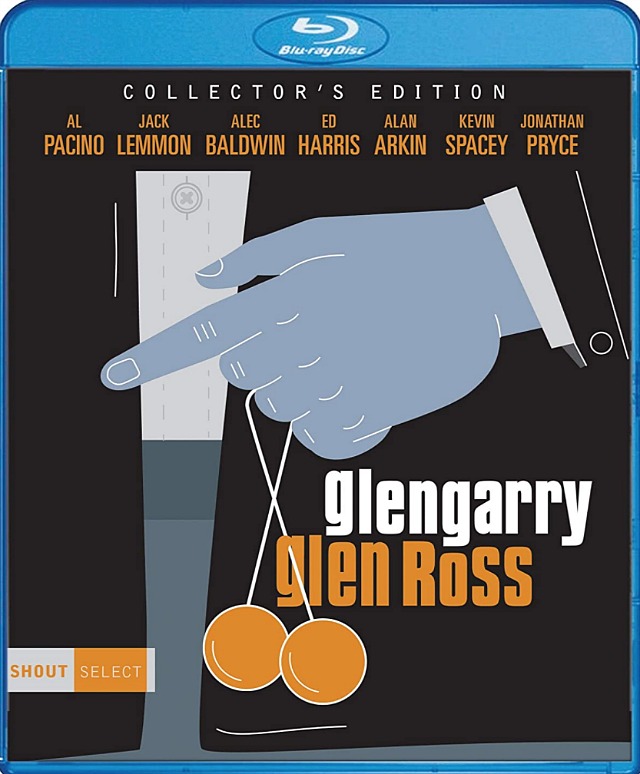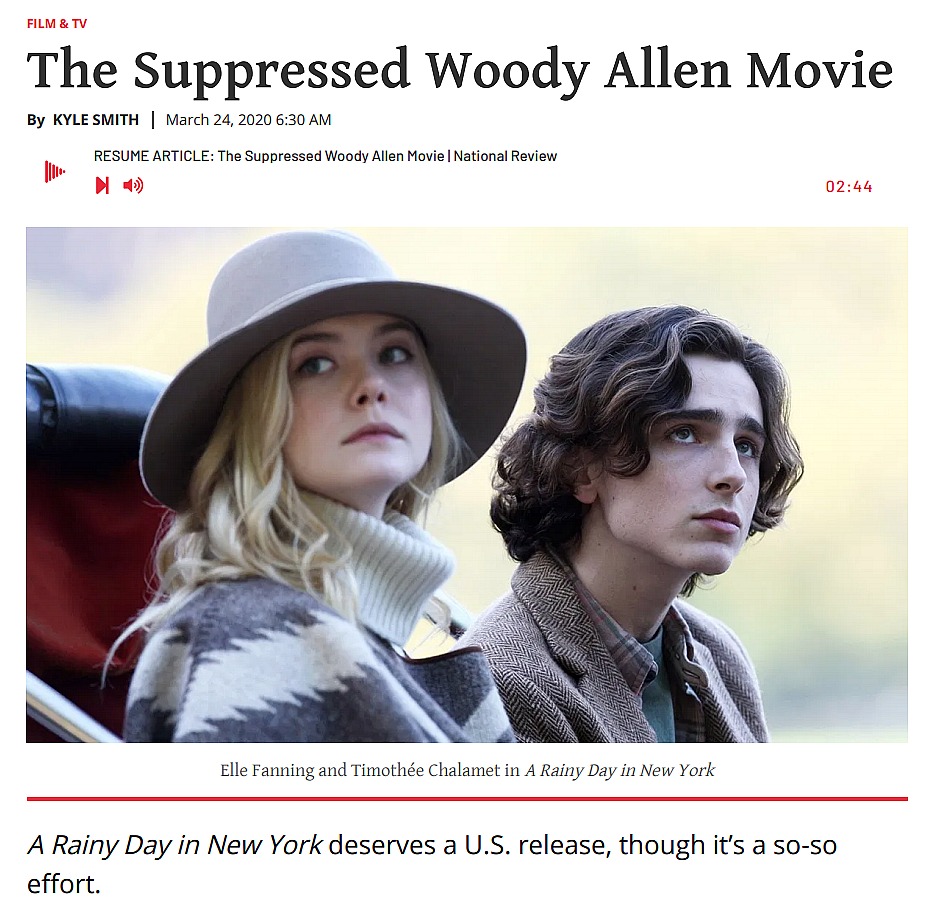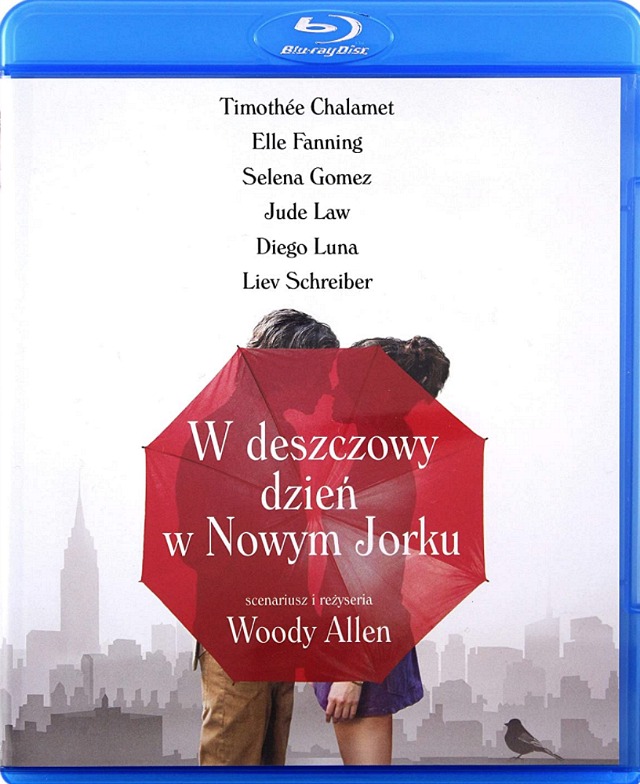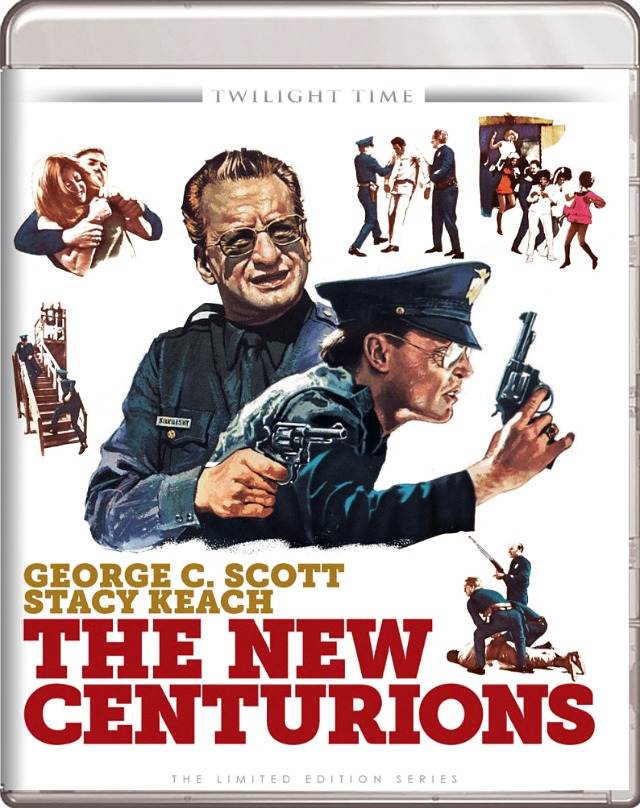what an ad. pic.twitter.com/yZV9KJCOEn
— Florida Chris (@chrislongview) March 25, 2020
what an ad. pic.twitter.com/yZV9KJCOEn
— Florida Chris (@chrislongview) March 25, 2020
A special edition Shout! Factory Bluray of Jamie Foley‘s Glengarry Glenn Ross pops on 6.2.20.
Sometime around 3.25.84 I attended a Broadway pre-opening performance of the original Gregory Mosher-directed play with all the big-gun critics (Frank Rich, etc.) in the orchestra. Joe Mantegna‘s Tony Award-winning performance as Ricky Roma ruled — a performance as seminal and historic as Humphrey Bogart‘s Duke Mantee in the B’way stage version of The Petrified Forest. Not to mention Mike Nussbaum, Robert Prosky (a brilliant Shelley Levine), Lane Smith, James Tolkan, Jack Wallace and J.T. Walsh.

I’ve read a little less than half of Woody Allen‘s “Apropos of Nothing.” I’ve gotten as far as the launch of Play It Again, Sam, his 1969 stage comedy that costarred himself, Diane Keaton, Tony Roberts and Jerry Lacy. This was also when his romantic relationship with Keaton began.
I’m loving the book completely, but I have to say that the portions dealing with Allen’s fascinating if occasionally bewildering childhood and early adolescence in Brooklyn (roughly his first 15 or 16 years) make for richer reading than the portions that cover how his career began — first as a kid who submitted jokes to Manhattan newspaper columnists, then an in-house joke writer, then as a comedy contributor to The Colgate Hour and Caesar’s Hour, then his beginnings as a stand-up comic in the early ’60s, etc.
The “starting to make it happen” stories are fine, but the childhood stuff is full of wide-eyed wonder, fevered impressions, impossible dreams.
Allen’s description of his first look at 1942 Times Square, when he was seven years old and his father had taken him along on some errand, is truly thrilling. Ditto how he loved the way women looked and smelled and felt during brief hugs when he was knee-high to a grasshopper. Plus the absolute joy of watching old-school movies every Saturday afternoon with a five-years-older female cousin at his neighborhood theatre. A lot of this material was covered in Radio Days, of course, but the writing is tart and wise and a joy to sink into.
The childhood portion, in short, is like the first 35 or 40 minutes of Stanley Kubrick‘s Spartacus (i.e., the first 25%) inside the gladiator school in Capua — the story tension and the personal suspense element about when and how Kirk Douglas and his bros might break out. Apropos of Nothing is similarly about young Woody’s confinement inside his family’s small apartment and the middle-class neighborhood he explored as a kid, and always the hovering question of when and how he’s going to break free.
I’ve been waiting to watch An Officer and a Spy (aka J’Accuse) for six months now, or since it played at the 2019 Venice Film Festival. (Remember film festivals? People of particular persuasions travelling and gathering and watching brand new films, etc.? Those were the days.) The version I’ll be watching this evening is in 720p with English subtitles. I can just about taste it.
From Kyle Smith‘s “The Suppressed Woody Allen Movie,” posted on 3.24.20, reviewed via a French DVD: “Although Allen is no longer in his prime as an artist, I’ve seen all of his movies and I wasn’t about to miss A Rainy Day in New York despite the damage done to his reputation in 2017, when he got singed in the wildfire started in a burn-the-witches spell of hysteria.
“Allen became persona non grata thanks to the resurfacing of a discredited and almost certainly false allegation that he sexually abused his then-seven-year-old daughter in 1992.
“I can’t fathom why Rainy Day, alone among the dozens of films Allen has made since 1992, should be suppressed in this country, but that is not to say it’s a strong effort. Unfortunately, it continues his string of mediocre-to-poor films.

“Like every other young person in the movie — people in their early twenties drop references to Grace Kelly, Sky Masterson, Yasir Arafat and going to medical school in Grenada — Gatsby talks an awful lot like an 84-year-old comedy writer, and his ideal weekend turns on joining the mummified habitués of the Pierre and Carlyle Hotels, where a college student would feel about as welcome as Allen would at Coachella. Allen writes his scripts on a typewriter, is a stranger to the internet, and it seems fair to say that his stock of references could use a bit of freshening.”
From “Rainy Day Goes Down Easy,” posted on 12.6.19: “A Rainy Day in Manhattan feels like some kind of self-satirizing spoof — a ‘sophisticated’, old-fashioned, Allen-esque satire that could have been made 30 or 40 years ago, and in fact seems to be happening in some kind of weird time vacuum.
“Some critics have said it doesn’t work because it’s all taking place in Woody World (i.e., bucks-up Manhattan and the same kind of tony locales that Allen has used since the days of Annie Hall and Manhattan) and that the younger lead actors (Timothee Chalamet, Elle Fanning, Selena Gomez) clearly don’t belong in it — they would never talk like naive young snobs or make witty Allen-esque cracks about this or that.
“But it’s amusing in a kind of goofball way because they’re all pretending that Woody World is an actual place and so they’re all playing a kind of dress-up and just cruising through and acting nonchalant, like it’s all a masquerade and they’re just going through the notions.
“And I really like the way Chalamet handles himself in this milieu. He’ll probably never ever behave this way in another movie ever again, and it’s fascinating to watch him pretend to be an Allen kind of guy (flush, entitled, smart-assy, tweed jackets) with casual confidence and just submitting to the unreality of it all.
“And at the same time the movie is fine as a whole — it shuffles along and seems to enjoy itself with an occasional wink at the camera. It doesn’t offend because it’s just gliding along…who cares? You’d have to be a real asshole to pan this without mercy. You’d have to have a fairly thick broomstick up your ass to begin with.”

Joseph Wambaugh‘s cop and crime books were all the rage from the early to late ’70s. Drawing from his 14 years of service with the Los Angeles police force, Wambaugh’s novels portrayed cops as complex, glum-hearted fellows coping with stress, heartache and constant anxiety. In the early ’70s gritty, semi-sympathetic portraits of angst-ridden beat cops felt like something new, or so it seemed. Out of that came Hill Street Blues (’81) and I don’t know how many other in-depth cop dramas on broadcast, cable and streaming.
The most substantial film to emerge from the Wambaugh canon was Harold Becker‘s The Onion Field (’79, in which James Woods and John Savage arguably gave their career-best performances. (Wambaugh’s book was published in ’73.) At the same time I’ve only seen The Onion Field once, and have no interest in going there again. Based on a real-life cop killing, it’s a relentlessly grim and haunted thing. Which is what makes it good, but also why I’d rather not revisit.
I was never a fan of Robert Aldrich‘s The Choirboys (’77), nor of Wambaugh’s 1975 source novel. I’ve always found alcoholism and lushy behavior to be terminally boring, and both properties were soaked with smelly booze.
My two favorite Wambaughs are Richard Fleischer‘s The New Centurions (’72), a mezzo-mezzo episodic which costarred Stacy Keach and George C. Scott, and the four-hour NBC TV movie of The Blue Knight (’73), which starred William Holden as crusty beat cop “Bumper” Morgan on the verge of retirement.
There’s a relatively new Twilight Time Bluray of The New Centurions available, and a Blue Knight Bluray popped a couple of years ago.
I could never understand why George C. Scott’s Andy Kilvinski put a gun in his mouth after hanging up his badge. He felt that his life was over, I realize, but he could have gone into business as a private detective. He could have had a whole new life.
